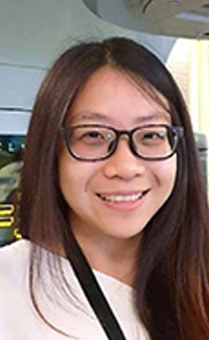Minor in Medical Physics

Medical Physics is the branch of physics that deals with the advanced technologies used in medicine and healthcare today. Examples are diagnostic imaging techniques such as Radiography, Computed Tomography (CT), Magnetic Resonance Imaging (MRI) and Positron Emission Tomography (PET), as well as radiation therapy techniques used in cancer treatments, such as Intensity Modulated Radiation Therapy (IMRT), Image Guided Radiation Therapy (IGRT) and Proton Therapy.
With the rapid ageing and the increasingly sedentary lifestyles of the global population, the demand for healthcare and medical infrastructure has risen sharply. Coupled with the rising expectations for better quality healthcare, experts in Medical Physics are needed where specialized knowledge and skills are required in specific areas such as Radiation Oncology, Medical Imaging and Nuclear Medicine).
The Medical Physics minor aims to teach the basics of Medical Physics and the constitutional knowledge that is required from Nuclear Physics as well as Biology & Life Science, in order to broaden the knowledge of some of our graduates at the interface of these fields. Those students who aim to become professional Medical Physicists will be able to utilize the solid foundation provided by the minor to continue forward into the postgraduate studies in Medical Physics.
Invitations to apply for the Medical Physics minor will be sent to first & second year students. Applicants who meet the pre‐requisites and have a good academic standing will be invited for an interview.
To be awarded a minor in Medical Physics, a student must pass the following courses.
- Three compulsory courses:
- GEH1032 Modern Technology in Medicine and Health or HSI2014 Science, Medical Technology and Society
- PC3294 Radiation Laboratory
- PC3295 Radiation for Imaging and Therapy in Medicine
- Any two of the following courses:
- LSM2106 Fundamentals of Biochemistry
- LSM2212 Human Anatomy
- LSM2231 General Physiology
- LSM2233 Cell Biology
- LSM3243 Molecular Biophysics
- LSM3223 Immunology
- LSM4243 Tumour Biology
The permissible double counting limit for a minor is 8 MCs. For this reason, LSM and PC major students need to take additional courses, as outlined in several scenarios below.
For LSM major students:
Scenario 1: LSM major students who choose to double count the 2 LSM electives to the major
- Students will not be able to double count HSI2014 to the CHS common curriculum and instead can only count it towards the minor requirements.
- Students will need to read one more HSI20xx course for the CHS common curriculum.
Scenario 2: LSM major students who choose to double count HSI2014 to the CHS common curriculum, and LSM2106 to the major (note: LSM2106 is a core course for the LSM major)
- The last LSM course read for the minor elective requirement cannot be counted towards the major requirements.
- Students will need to read an additional LSM course for their LSM major.
Scenario 3: LSM major students who choose to double count HSI2014 to the CHS common curriculum, and an LSM elective (not LSM2106) to the major
- LSM2106 can only be counted to the major, but not to the minor
- Students will need to read another LSM course (not LSM2106) from the minor elective list to fulfil the minor requirement. This LSM course read cannot be used for the LSM major requirements.
For PC major students:
Scenario 1: PC major students who choose to double count PC3294 and PC3295 to the major
- Students will not be able to double count HSI2014 to the CHS common curriculum and instead can only count it towards the minor requirements.
- Students will need to read one more HSI20xx course for the CHS common curriculum.
Scenario 2: PC major students choose to double count HSI2014 to the CHS common curriculum, and either PC3294/PC3295
- The other PC course cannot be counted towards the major requirements.
- Students will need to read an additional PC course for their PC major requirements.
For more information and queries on the programme please contact: Dr Chan Taw Kuei (email: phyctk@nus.edu.sg)
Testimonials from our recent graduates




